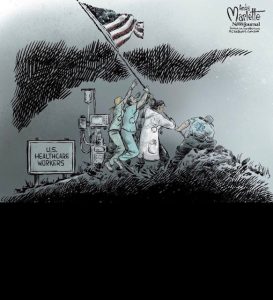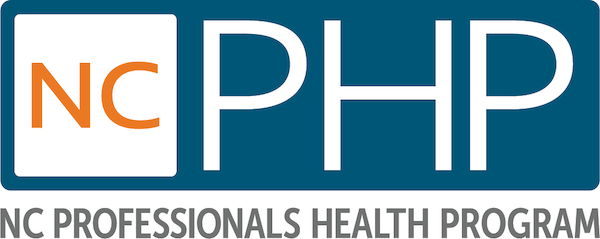08 May New Survey Tool Assessing COVID-19 Worker Impact: The Pandemic Experiences & Perception Survey by Clark Gaither, MD, MRO, FAAFP
There exists well established tools for assessing harmful, dysfunctional, or toxic work environments. The Maslach Burnout Inventory (MBI) has a decades-long track record of success for measuring the degree of job-related burnout present in any one individual, with both high sensitivity and specificity. The Maslach Areas of Work-Life Survey (MAWS) is equally efficient at measuring the underlying causes of JRB within any type of work environment. As rampant as JRB is in healthcare, these tools are vastly underutilized in my opinion. Yet, as good as these tools are for assessing worker burnout and the underlying causes, they are not specifically designed to account for acute and highly unusual circumstances which might negatively impact large swaths of the working public, such as a war or pandemic. Something of this nature would require a new tool or modification of existing ones for assessing the negative impact on the workforce.
I am happy to report a new tool has recently been developed to assess the impact of the COVID-19 pandemic on healthcare workers as well as those working outside of healthcare. This new survey instrument was developed by (1)Dr. Michael P Leiter, an organizational psychologist, and it is called the Pandemic Experiences & Perception Survey (PEPS).
Full Disclosure: I have no financial interest in this product whatsoever and I will not receive any incentives for this review, either from the author of the survey or from (2)Mind Garden where it can be purchased (link at the end of this post).
The PEPS is a 35-item questionnaire for working adults, for group administration, and takes about 5- 10 minutes to complete online. It has been designed to measure employees’ experiences  working during a pandemic and provides for real-time results reporting. The stated purpose of the survey is to, “Measure the extent of pandemic impact, work resources, risk perception, employee work-life, and leadership.”
working during a pandemic and provides for real-time results reporting. The stated purpose of the survey is to, “Measure the extent of pandemic impact, work resources, risk perception, employee work-life, and leadership.”
From the written description of the PEPS at Mind Garden, you will find the following information:
“The coronavirus pandemic has profoundly impacted the way people work, with potential implications for employees’ health, well-being, and work engagement. An assessment of employees’ experiences can provide leaders with key guidance for managing the current situation, leading the organizational recovery afterward, and for anticipating future challenges. The PEPS assessment provides critical information on:
• Disruption: extent of workflow disruption
• Resources: to what extent were key resources adequate to meet demands
• Risk Perception: to what extent did employees feel at risk. What contributed to risk perceptions: Contact, Control, Potential harm
• Impact on work-life areas: Workload, Control, Reward, Community, Fairness, and Values Congruence
• Perceptions of leadership: including Overall Leadership and Immediate Manager
• Open-text items: identifying what would help employees now and what gives them hope”
The folks at Mind Garden point out that the PEPS can be custom modified to better fit the needs of an organization if some of the items in the questionnaire are deemed to be non-applicable, need to be more focused, or if there is a desire to make it more brief. Additionally, specific workgroups within multi-level or multi-location organizations can be reported out separately for more tailored responses. Mind Garden has also indicated the PEPS is now being offered at a discounted price as part of their commitment to helping organizations through the COVID-19 crisis.
Although I have not yet had the opportunity to purchase or utilize the PEPS, I am looking forward to my first application of this new survey tool in the current ongoing healthcare crisis. I have purchased the MBI and MAWS instruments from Mind Garden for consultation projects. Their staff members are very responsive to questions and are most helpful in offering instructions. They will gladly walk you through a survey project, on large or small scales.
“For managing and leading people dealing with customers, patients, and the public; to assess employee experiences working through a pandemic; and to provide guidance for organizational recovery,” the PEPS may prove to be an invaluable tool for a more expedient post COVID-19 workforce recovery.
(1) Michael P. Leiter, Ph.D., is an organizational psychologist interested in the relationships of people with their work. He is a professor at Acadia University and researches through the Centre for Organizational Research & Development (Wolfville, Nova Scotia, Canada).
(2) Link to the PEPS at Mind Garden: https://www.mindgarden.com/346-pandemic-experiences-perceptions-survey#horizontalTab4

